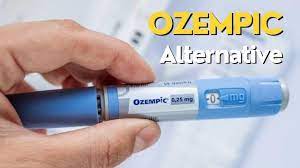
How Many Calories Should I Eat to Lose Weight Fast: A Comprehensive Guide
Losing weight is a goal for many, but figuring out how many calories you should consume to achieve rapid weight loss can be challenging. In this comprehensive guide, we will delve into the science of weight loss and provide you with actionable insights on how to determine your calorie intake for fast and effective results.
Let’s embark on this journey towards a healthier, happier you.
How Many Calories Should I Eat to Lose Weight Fast?
To kickstart your weight loss journey, you need to understand the role of calorie intake. While the exact number varies from person to person, a general guideline is to consume fewer calories than you burn. This creates a calorie deficit, prompting your body to tap into its fat stores for energy. Here’s how to calculate your ideal daily calorie intake:
Calculating Your Basal Metabolic Rate (BMR)
Your BMR is the number of calories your body needs to function at rest see it here ndtv. There are several formulas to calculate BMR, with the Mifflin-St Jeor Equation being a popular choice. It takes into account your age, weight, height, and gender. Once you have your BMR, you can move on to the next step.
Determining Your Total Daily Energy Expenditure (TDEE)
Your TDEE factors in your activity level. Multiply your BMR by an activity factor (usually 1.2 for sedentary, up to 2.5 for very active) to get your TDEE. This number represents the calories you need to maintain your current weight.
Creating a Calorie Deficit
To lose weight, you should consume fewer calories than your TDEE. A safe and sustainable calorie deficit is typically 500 to 1000 calories per day, which can result in a weekly weight loss of 1 to 2 pounds.
The Importance of LSI Keywords in Your Diet Plan
While we’ve discussed the technical aspects of calorie intake, it’s crucial to understand the quality of the calories you consume. Opt for nutrient-dense foods rich in vitamins, minerals, and fiber. Incorporate LSI (Latent Semantic Indexing) Keywords into your diet:
- Lean Proteins: Include chicken, fish, and tofu in your meals.
- Fruits and Vegetables: Load up on colorful fruits and vegetables for essential vitamins and minerals.
- Whole Grains: Choose whole wheat, oats, and brown rice for sustained energy.
- Healthy Fats: Incorporate avocados, nuts, and olive oil for a well-rounded diet.
